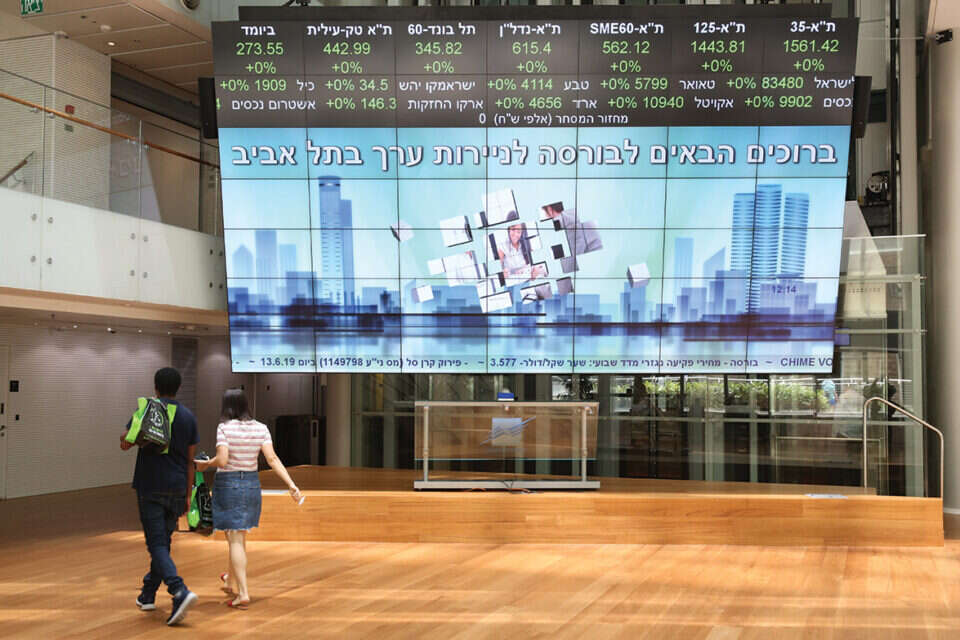Even those who are not interested in the stock markets can not ignore some interesting phenomena that have been seen in recent weeks in connection with the fall in Wall Street indices, the sharp rise in US interest rates and the jump in the dollar against the shekel.
For example, while the leading US indices are recording alarming price declines (the Nasdaq index has plunged more than 22% since the beginning of the year and the S&P index has dropped 14%), the Tel Aviv Stock Exchange is holding up in the meantime.
Until yesterday, it still showed a positive return from the beginning of the year, and as of this writing, it has fallen "only" by 2% since the beginning of the year.
At the same time, the US Federal Reserve is expected to raise interest rates by 0.5% tomorrow, and it is estimated that it will do the same in June and July. 2% or more already this summer.
And to complete the picture, the dollar jumped more than 7% against the shekel this year - exactly the opposite of the trend to which we have become accustomed, of a strong shekel and of the Bank of Israel, which continues to fight the natural trend of strengthening the shekel against the dollar.
To find out the reasons for the changes in trends and how their reversal is affecting Israel, we turned to Mizrahi-Tefahot's chief economist, Ronen Menachem.
What causes declines in the markets?
The Russia-Ukraine war, which is currently not seen to end, continues to hurt investor sentiment and cause commodities to rise in price. Which direction is she going.
"Another reason for the declines in the markets is the rise in interest rates. The Fed made an amazing move in my eyes and made the markets understand that not only will the interest rate rise by 0.5% in May, but it will rise to 2% by July."
Ronen Menachem, Photo: Mizrahi Tefahot
Why is the Tel Aviv Stock Exchange strong compared to the world stock exchanges?
"There are several reasons for the over-performance of the Israeli stock exchange - the inflation rate is lower, and economic performance has also proven itself. We are one of the countries with the fastest growth among OECD countries. The stock exchange has so far enjoyed political stability, and this will stand the test.
"In addition, the structure of the local stock exchange is less sensitive to what is happening in stock exchanges abroad, so in periods when they are declining at sharp rates, the declines here are more moderate.
All of these have caused the Israeli stock market to overperform not only this year but also in the last two years, and of course there is less expectation of a rise in interest rates. "
Will the declines in the Nasdaq index stop the Israeli growth locomotive?
"Technology companies need to attract investors, and these ultimately want companies to be able to raise more money on the stock market. Once there is a sharp decline in the Nasdaq index, the issue of IPOs is reduced.
"The issue of zero interest rates, which contributed to the flourishing of high-tech companies, is also beginning to unravel - and this combination of declines in Nasdaq and interest rate hikes is also hurting Israeli high-tech companies.
"It hurts both the economic level and the level of sentiment. It is a combination of economic influence and psychological influence, which comes after a period of continuous immigration of Israeli high-tech companies."
The rise of the dollar against the shekel will inevitably increase the price of imported products - or do most companies hedge their purchases?
"By and large, as the dollar continues to rise, it seems to have more of an impact on the prices of products imported from abroad.
Companies that hedge at rates higher than the exchange rate today, in such a situation have to bear the expenses against over hedging.
The rise of the dollar against the shekel contributes to exporters, but on the other hand it makes the prices of imported products more expensive. "
Were we wrong?
Fixed!
If you found an error in the article, we'll be happy for you to share it with us

